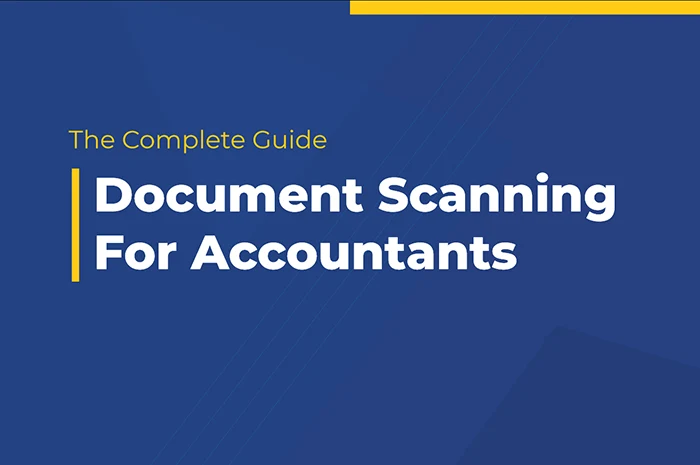Document Scanning For Accountants
Accountants and tax preparers routinely handle a large volume of sensitive tax documents for their clients. Keeping this and other confidential information safe and secure is paramount for the success of your firm.
Our HIPAA compliant document scanning service is designed to help CPAs and other tax professionals do just that, while converting mountains of paper files into an easy-to-search library of digital files.
Modernize Your Workflow
Scanning & Imaging For
Accountants.
As an accountant, you'll probably never be able to eliminate paper from your practice completely. However, reducing your reliance on paper brings your firm into the modern era, increasing productivity, improving access to your documents, and enhancing security.
Better Organization
Our OCR software converts important data on your accounting documents into a keyword searchable digital archive, allowing you to pull up any document you need instantly with simple text based searches.
Data Redundancy
Make sure your business is able to provide continuity in its services no matter what happens. Digital files are protected with redundant backups in a highly secured cloud environment.
Less Paper
Rummaging through filing cabinets to find the documents you need is not only annoying, it’s also incredibly inefficient. Reducing the amount of paper passing hands in your firm means less time spent searching for documents, and more time helping your clients.
Reclaim Space
Chances are, you're using a significant percentage of your office space for paper storage. Digitizing your documents frees up valuable space for other, more useful business purposes.
Enhanced Security
Share files with the rest of your team with the click of a button. Provide instant and highly secured 24/7 access to your important documents from any physical location.
We make document scanning easy
for accountants.
SecureScan has more than 22 years of experience helping accountants make the digital transition. We will guide you through the entire process from start to finish, helping you take advantage of the benefits of a modern digital workflow.

Consultation
Talk with one of our document scanning specialists, who will evaluate your needs and answer any questions you have about the process.

Planning & Setup
We'll work one on one with you to create a customized plan, designed to help you get the most out of your digitized documents.

Implementation
Let our experts handle the rest. We'll take care of the organization, scanning, indexing, and quality control process from start to finish.
Ready to simplify your document management and elevate your accounting practice? Our secure scanning service will help you reclaim control over your paper clutter.
Get a Free QuoteProtect your client's confidential information
Our HIPAA compliant, SOC 2® Type 2 certified scanning service adheres to the highest standards of data management and privacy, to ensure the privacy of your client's data is protected throughout the process.
Our number one commitment is to the safety and security of your sensitive data. We invest heavily in secure technologies and employee training programs to ensure the safe and proper handling of your documents.
Security & Compliance
Save time, save money.
Traditional paper-based file management costs more money in time and labor than you may realize. Every lost minute spent searching for files and sorting papers adds up to big money, no matter what size firm you operate.
Making the commitment to reduce paper at your firm is not just a change in the way daily business is conducted, it's an investment in your future. Our ultra-affordable document scanning service helps you reduce wasted time and money spent on outdated paper processes.
Try Our Free Scanning Price Calculator
Organized and efficient.
A thriving accounting office can easily be overwhelmed by the sheer volume of paperwork that passes through its doors. With every new client you serve, another paper pile is added to the stack, and that makes it easy to become disorganized, especially during tax season.
Our scanning service for accountants can help you get a grip on your documents, preventing costly mistakes and daily frustration. We will convert your hard-copy documents into easy to manage digital files, so you can quickly locate documents the moment you need them.
Get a Customized QuoteHere's what our customers
are saying...
Document Scanning For Accountants
Download Our Guide
Unlock efficiency and security in accounting with our in-depth guide. Explore how our specialized document scanning services can transform data management, compliance, and operational efficiency for your accounting practice.
Download PDF (653KB)Common Questions
Get answers to the questions we hear most often from accountants and tax preparers.
What Is the Benefit of a Document Scanning Service?
There are many reasons why a business may choose to scan and convert paper documents into digital files. If your business has compliance requirements or regulations for data retention, paper files can be cumbersome and much more expensive to store than their digital counterparts.
After scanning, your documents are carefully indexed and organized by any identifier(s) on the documents of your choosing, allowing you to locate any file almost instantaneously by a simple text search, greatly improving efficiency.
What Kinds of Documents Can My Accounting Firm Scan?
Our scanning service enables accounting firms to convert a wide range of essential business documents into digital formats, centralizing data for easier access. Here are some of the document types that can be converted:
- Tax Records: Personal and business tax returns, W-2 and 1099 forms, along with supporting documents like receipts and invoices.
- Financial Statements: Balance sheets, income statements, and cash flow statements, offering a full view of financial health.
- Payroll Data: Employee salaries, bonuses, and other compensation, often linked with Social Security numbers and direct deposit details.
- Banking and Investment Records: Account statements, investment portfolios, and transaction histories crucial for financial planning.
- Audit Trails: Documentation from audits, containing sensitive data noted during the auditing process.
- Client Data: Personal identification details, such as names and addresses, used for risk assessment or financial planning.
- Legal Documents: Contracts, agreements, or court documents relevant to tax status or financial obligations.
- Business Records: Operational data, sales figures, and proprietary financial models.
- Receipts and Invoices: Digital and physical records of business or personal expenses.
- Correspondence: Emails, letters, and memos containing sensitive information discussed with clients or third parties.
- Business Filings: Documents filed with government entities, including incorporation articles and annual reports.
- Accounts Payable: Records of business payments to vendors, containing sensitive bank and agreement details.
- Audit Worksheets: Essential records for auditors, often with sensitive financial data and insights on internal controls.
- Proxy Statements: Disclosures sent to shareholders, usually with executive compensation and strategic information.
- Evidential Documents: Files, such as court orders or emails, that support or dispute financial claims.
- Loan Documents: Promissory notes, mortgage agreements, and other loan documents with sensitive financial information.
- Advisory Letters: Specialized advice documents, containing sensitive company or client information.
- Personnel Files: Employee files, with sensitive information protected by company policy and law.
- Purchase Orders: Authorizations for purchases, including pricing and vendor details.
Each of these documents often contains sensitive data, which requires secure handling, storage, and strict security protocols for protection.





